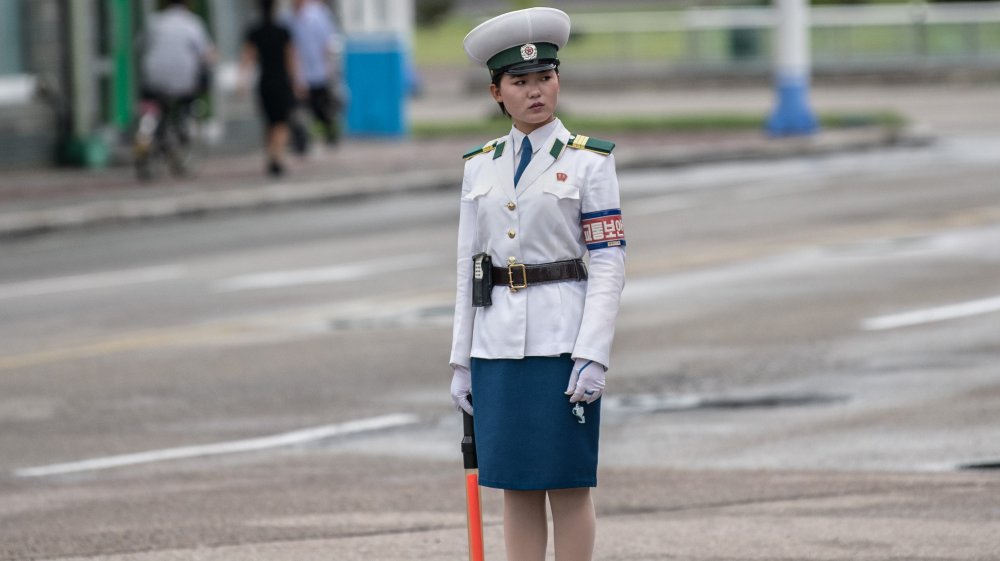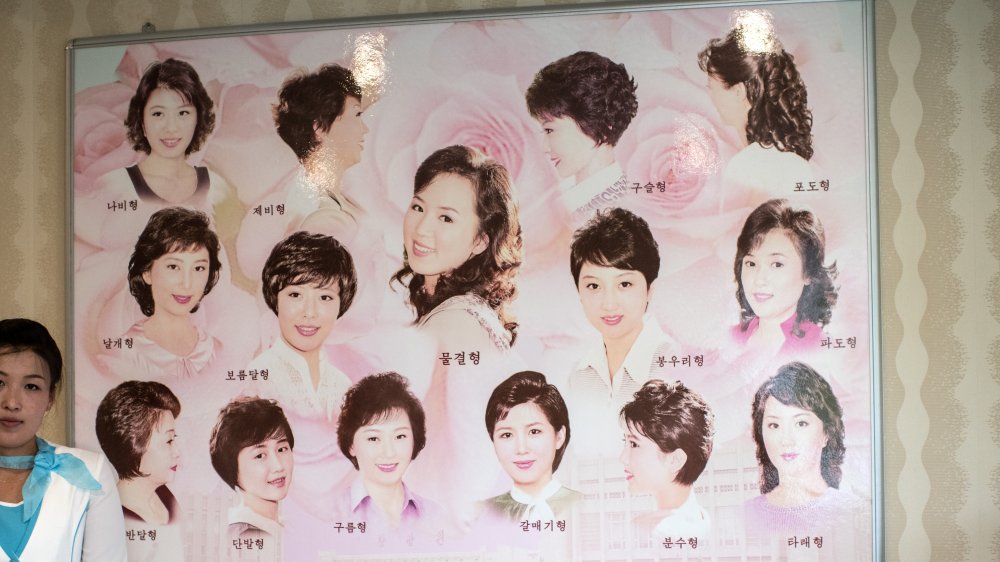Why North Korea Has Actual Fashion Police
Of the many bizarre things that only exist in North Korea, one of the strangest has to be the presence of actual fashion police. Per Refinery 29, in addition to the bans on free speech, freedom of the press, and freedom of religion, the North Korean government also dictates what citizens can and can't wear. One method of fashion policing is the state publication of Choseon Ryusung, a magazine intended for women that advises "attire must fit the socialistic way of living" and "dictates that hair must be mid-length or shorter, clothing must be modest and loose-fitting, and any foreign trend or style is strictly forbidden." The ideal of female beauty is modeled by "traffic ladies" (pictured above), who, according to the Daily Mail, are selected on the basis of their good looks and must retire before the age of 26.
The Telegraph reports that in the capital city of Pyongyang, "patrol units of the Women's Union" station themselves at crossroads wearing traditional Korean hanbock dresses in black and carrying whistles. They stop and interrogate any women who pass by wearing banned clothing, makeup, or hairstyles — short or revealing skirts, pants rolled above the knee, and dyed or long hair are all grounds for discipline, which can range from "small fines to short-term imprisonment."
Fifteen state-approved haircuts?
In an interview with Yahoo! Life in 2017, political science professor Katherine H.S. Moon suggested people outside of North Korea should be skeptical of reports regarding state-mandated fashion and beauty, noting that during a visit to North Korea in 2013, she saw women in "high-heel sandals with rhinestones and glitz wearing tight jeans or shorts over leggings, riding Pyongyang's subways."
However, there was a marked crackdown on unapproved clothing and hairstyles in 2018 as the country prepared for its 70th anniversary, according to The Telegraph. A source explained "Enforcers are active on the streets and in public areas every day to stop 'unenlightened' people from displaying behaviors that might disgrace the country." In addition to the Women's Unit patrol, Refinery 29 notes that the Socialist Youth League has authority over children, teens, and unmarried women in some areas, while married women are traditionally monitored by their husbands. Former North Korea resident Jessie Kim, who later defected to South Korea, told Refinery 29 that when she wanted to buy beauty products such as facial toner or sheet masks, she had to do so "secretly and illegally." Men and women are both allegedly allowed just fifteen state-approved haircuts, which are displayed in salons on posters.

